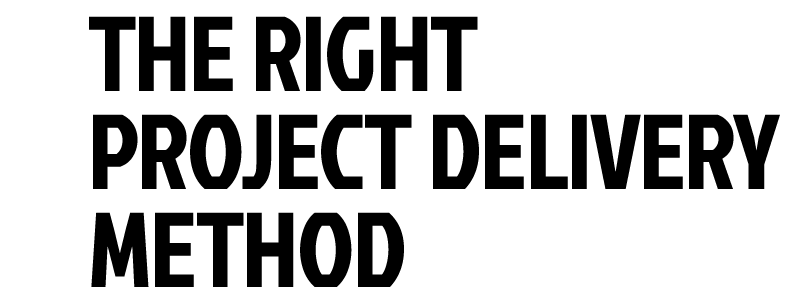
Contracts can either be a roofing contractor’s best friend or worst enemy. It is critical that contractors are aware of the provisions within roofing and prime contracts (as subcontracts often incorporate prime contract provisions). Due to the importance of contractual terms and provisions, outlined below are five essential contract provisions that, if not properly drafted, can have harmful consequences to your business and bottom line.
1. Scope of Work Provisions
“Scope of work” issues compose a large part of litigation under roofing contracts. Scope of work disputes typically involve contractors seeking payment for work that was not in the original contract, followed by unhappy owners disputing whether or not they agreed to the work that was performed. Scope of work issues arise when roofing contractors find areas of the roof that need additional work performed in order to successfully complete a project but may not have been adequately referenced within the contract. For instance: when a roofing contractor is performing a contract for a roof replacement, and the roofing contractor — in the process of replacing the roof — finds rotted decking that needs to be replaced, the roofing contractor is likely, and rightfully, going to perform the additional work and charge for the additional material and labor costs. The additional charges can be ripe for disagreement due to the original contract failing to adequately contemplate decking replacement as an extra charge.
Well-crafted scope of work provisions are imperative to include in roofing contracts. If additional work is encountered during a roofing project, as we all know is typically the case, the contract should explicitly state that the extra work (i.e., replacement of decking, fascia, soffits, etc.) will be an additional cost. Just as important, the contract should also state the method of pricing for this extra work.
2. Indemnification Provisions
Indemnification provisions are another important component of roofing contracts. Indemnification is the compensation for damages (or loss) as a result of someone else’s bad acts or omissions. For the roofing industry, indemnification clauses are important because they limit a roofing contractor’s liability.
It is important to note that there are several different types of indemnification provisions within roofing contracts: standard indemnity, super indemnity, and those that fall in between. Standard indemnity is the indemnification of the customer for the roofer’s actions that cause damage to the subject property. Super indemnity includes indemnification from the roofer’s own actions that cause damage, in addition to indemnifying a customer of his/her own acts. For instance: if a customer goes on a roof after hours to move equipment around, tearing a hole in a tarp covering which later leads to water damage, the super indemnity provision allows the customer to make a claim against the contractor — even though the customer’s own act caused the damage.
Indemnification provisions are complex and heavily litigated. Individual states have specific statutes and rules that control indemnification provisions in construction contracts. Due to this, roofers must ensure contracts are sensibly reviewed to ensure that the contract and its provisions comply with applicable state laws.
3. Liquidated Damages Provisions in Construction Contracts
When there is a contract, and one party to the contract breaches it, the non-breaching party oftentimes desires a liquidated damages provision in the contract to limit its damage exposure. Liquidated damages provisions are created to compensate a non-breaching party for the damages incurred from another party’s breach of the contract based on a predetermined amount and can protect a roofing contractor from large losses.
In roofing contracts, liquidated damages are usually tied to timely completion of the work by the contractor — that is, if not timely completed, the project owner is able to collect liquidated damages from the contractor due to failure to complete the project within the set timeframe.
Liquidated damages provisions must be carefully crafted and generally must abide by the following:
- The damages must be intended to compensate the project owner for the breach of the contract — the liquidated damages provision cannot be a penalty. Courts have found that if the stipulated sum for liquidated damages is too great in comparison to the actual contract amount, the liquidated damages provision will not be enforced.
- The liquidated damages provision is not enforceable if the non-breaching party contributed to the breach.
- Because liquidated damages compensate for damages caused during late completion of a project, liquidated damages cannot be sought after the project has been substantially completed since the owner is no longer accruing damages.
These general rules of liquidated damages are important for roofing contractors to be aware of because when a project owner withholds proceeds, the contractor will be ready to make proper arguments to secure payment and potentially void the liquidated damages provision. To void a liquidated damages provision, the contractor can argue that any one of the above liquidated damages provisions has been violated. By proving any of above, the liquidated damages provision may not be enforced by a court and the contractor can successfully collect payment.
4. No Damages for Delay Clauses
Owners try to include limitations of liability and disclaimers within their roofing contracts. This is done to limit a roofing contractor’s ability to collect additional compensation from work due to unexpected delays and other conditions. Typically, under no damages for delay clauses, the roofing contractor is given extra time to complete a project but is not compensated for extra costs incurred due to said delay. No damages for delay clauses have a wide breadth in that they cover delays whether they are caused by an owner or caused by acts of God.
No damages for delay clauses are for the most part upheld in courts of law. However, there are certain circumstances where courts have declined to enforce a no damages for delay clause. If it is shown that an owner has acted in bad faith, the owner defrauded the contractor, or that the owner interfered with the contractor’s ability to finish the project, courts have the ability to decline to enforce a no damages for delay clause.
No damages for delay clauses—which can be found within bid documents—are important for roofing contractors to take note of since it allows roofing contractors to accurately adjust both their bids and work according to the contract terms.
5. Retainage Provisions
Retainage — or the withholding of a predetermined percentage of each progress or final payment — is included in many roofing and general construction contracts. Owners and prime contractors withhold retainage until final completion of the project. Retainage provisions have dual purposes: (1) they are used as an incentive for roofing contractors to complete the project; and (2) are used as protection by the owner in the event of uncompleted or defective work.
Roofing contractors should be wary that retainage can deepen the impact of subpar estimating as 5 percent to 10 percent of the contracted price is typically not paid until final completion of the project.
About the author: David Keel is an attorney at Cotney Construction Law who focuses his practice in various areas of construction law, and he serves as General Counsel of Space Coast Licensed Roofers Association. Cotney Construction Law is an advocate for the roofing industry and serves as General Counsel for FRSA, RT3, NWIR, TARC, WSRCA and several other roofing associations. For more information, visit www.cotneycl.com.
Author’s note: The information contained in this article is for general educational information only. This information does not constitute legal advice, is not intended to constitute legal advice, nor should it be relied upon as legal advice for your specific factual pattern or situation.





Be the first to comment on "Five Essential Roofing Contract Provisions"